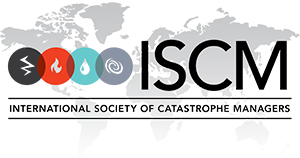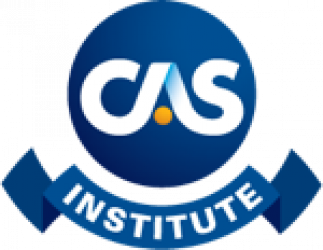CSCR and CCRMP Continuing Education Recommended Guidelines
ISCM and iCAS have jointly developed a Catastrophe Risk Management Credential program to validate and recognize knowledge and professionalism in the management of catastrophe risk worldwide. An important aspect of a robust credentialing program is to encourage and acknowledge ongoing professional development through Continuing Education (CE) so credential holders are always prepared to meet the demands of the evolving business environment.
The following CE program details the recommended guidelines for maintaining the Certified Specialist in Catastrophe Risk (CSCR) and Certified Catastrophe Risk Management Professional (CCRMP) designations.
The purpose of the CE program is to:
-
- Enhance continuous learning and development among CSCR and CCRMP holders
- Provide direction and recommendations in development areas to ensure relevancy of learning topics and exposure to new and evolving techniques
- Encourage and recognize activities that give back to the profession
- Grow and sustain the global recognition and value of the CSCR and CCRMP credentials
Everyone who earns a CSCR or CCRMP credential is highly encouraged to attain 24 Continuing Education Units (CEUs) every 24 months (2 years). One CE Unit reflects a minimum of 50 minutes of activity, and partial credit may be earned. At this time, credential holders are encouraged to track their CEUs for their own development and growth, but submissions do not need to be provided to ISCM or iCAS for review. In the future, this may be updated as the program develops and online tracking resources are made available.
We recognize that each individual has different professional needs and goals. The CE program is designed to be flexible so that it can adapt to those needs and allow customization of CE activities.
CEUs can be earned through various professional development activities that center on the following areas:
-
- Education – Learning opportunities that allow a credential holder to expand and enhance catastrophe risk management skills
- Thought Leadership and Giving Back to the Profession – Activities that enable a credential holder to share and utilize knowledge and skills to support the growth, recognition, and evolution of the catastrophe risk management profession
We advise that a minimum number of CEUs should be “Structured.” This means live interaction with other catastrophe risk management professionals through a formal course, conference, seminar, or webcast with interactive Q&A related to industry knowledge or other relevant skills.
There are different CEU recommendations for CSCR and CCRMP maintenance, as outlined below:
| Credential | Structured Education | Self-Directed and Informal Learning | Thought Leadership and Giving Back to the Profession | Total CEUs per Cycle |
| CSCR | 12 CEUs | 8 CEUs | 4 CEUs | 24 CEUs |
| CCRMP | 4 CEUs | 4 CEUs | 16 CEUs | 24 CEUs |
The advanced experience level of the CCRMP holder is reflected in a higher weighting for activities in the Thought Leadership and Giving Back to the Profession category.
Reporting Process
CEUs will be self-tracked at this time, and do not need to be reported. This may change in the future if systems are available to automate parts of the process (for example, automated CEU reporting for attendance at select trainings or conferences).
Ways to Earn Structured Education CEUs
Course or Training
Instructor-led formal education courses or classes held in-person or online
Participating in educational training courses is a traditional and effective way to learn. There are numerous outlets for these activities offered by ISCM, iCAS, CAS and third-party providers.
Organization Meetings and Events
Meetings, activities, and events related to the profession
Professional meetings that include an educational component provide an opportunity to learn and network. ISCM and iCAS host these activities throughout the year. Formal conferences and seminars would also apply. One example is the Reinsurance Association of America’s (RAA) Cat Risk Management Conference. If you attend sessions for 3 full days, you could earn up to 24 CEUs. If you are a presenter, you may also earn CEUs from creating content and presenting (see details on page 3). In addition to formal conference and seminars, your organization may conduct professional events that also qualify.
Ways to Earn Self-Directed and Informal Learning CEUs
Online or Digital Media
Self-paced learning conducted online or through varied forms of digital media
Many educational webinars, videos and other types of digital content are available online and on demand.
Read
Self-directed reading that is relevant to the credential you hold
Reading is a valuable component of learning, and there are countless reading materials pertinent to the profession. You can read books, articles, whitepapers, or blogs to stay informed and support your ongoing professional development.
Informal Learning
Educational opportunities focused on structured discussions
Sometimes learning comes through interaction with others. You can earn CEUs by engaging in structured professional discussions with others, for example while you’re being mentored or participating in a “lunch and learn” session with your organization.
Ways to Earn Thought Leadership/Giving Back to the Profession CEUs
Create Content
Creating new knowledge resources for use by practitioners and the public at large
By developing knowledge resources, you can share your knowledge and insight with others and contribute to their ongoing learning. There are many ways to create new content, such as authoring books, blogs or articles, or creating webinars or presentations.
Give a Presentation
Presenting on topics relevant to the profession
There are many occasions when you could give a formal presentation to others and share knowledge that relates to the profession. For example, you could speak at an ISCM event, professional conference, or within your organization. Note, time required to create the presentation could also be claimed separately (see Create Content section above).
Share Knowledge
Sharing your domain knowledge to help others learn and grow
Whether you’re mentoring, teaching or applying your subject matter knowledge toward an activity, others will benefit from your experience and perspective.
Volunteer
Providing volunteer services to non-employer or non-client organizations
By volunteering, you can serve on an ISCM/iCAS committee or team. This could include exam grading, future exam development, joining a technical, marketing/communications, or education committee, or serving as a liaison with key organizations. You can also volunteer for educational initiatives of other not-for-profit organizations.

